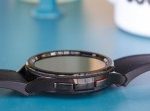Professor Dale Fisher, a Melbourne-born regional infectious disease specialist and an adviser on Singapore’s pandemic strategy, told The Australian that Australia needs an exit strategy as the pandemic continues. “Australia has to have a really strategic discussion with its communities and remove this zero tolerance for cases,” he said.“There has to be a time when Australia decides it’s going to tolerate cases, some hospitalisations and some deaths. We did very well from a health perspective through the worst part of the pandemic, but we don’t want the tail of this pandemic to go on for years.“It seems the strategy is to wait until everybody is vaccinated and then open the doors and everything will be all right. It’s easy to get to the first 30 to 40 per cent, but I don’t think everybody will get vaccinated.”“I think Australia is significantly painted into a corner of enjoying the success of health efforts to date, taking the hit socially and economically.“But the tables could turn and they could end up watching business, life, holidays, family reunions happen in the rest of the world while they still can’t visit children overseas or have big gatherings.”HUNT MARKS AUSTRALIA’S ZERO CASES OF TRANSMISSIONFederal Health Minister Greg Hunt has announced Australia has seen another day free from community transmission.“Zero cases of community transmission nationwide today marking it 65 per cent of days this year with no cases,” he tweeted.“At the same time over 725,000 cases and 12,500 lives lost worldwide in the last 24 hours. Over 76,000 vaccinations in Australia yesterday taking our total to 3,056,797 so far.”MORE ASTRAZENECA BLOOD CLOT CASESThere have been seven new blood clot cases following the AstraZeneca vaccine, the Therapeutic Goods Administration has revealed.The new cases of thrombosis with thrombocytopenia syndrome (TTS) were revealed in the TGA’s COVID-19 vaccine weekly safety report on Thursday.Three cases were confirmed as TTS, while four were deemed probable.The three confirmed cases included a 75-year-old man from Victoria, a 75-year-old man from Western Australia and a 59-year-old Queensland man who was diagnosed in Victoria.“Of these, only the Victorian man remains in hospital, but is responding to treatment and is in a stable condition,” a TGA statement read.“The other two patients are not currently in hospital and are thought to be well.“Four other newly reported cases are considered to be probable TTS. This includes three men from Victoria aged 65, 70 and 81 years, and a 70-year-old man from NSW.” All but one of the newly reported cases was vaccinated after the April 8 recommendation by ATAGI that Comirnaty was preferred over the AstraZeneca vaccine in adults aged under 50 years.The developments take the total Australian reports of cases assessed as TTS following the AstraZeneca vaccine to 18. About 1.8 million doses of the AstraZeneca vaccine have been administered so far.NED-3619-AstraZeneca blood clots-What we knowAUSSIES CAN MIX AND MATCH COVID JABSAustralians who have already had one COVID-19 jab are likely to be able to mix and match brands when they get a second or a booster dose.The development came as the government announced a deal to purchase 25 million doses of Moderna’s mRNA COVID-19 vaccine, including 15 million doses that will protect against mutant variants of the virus.It also revealed it was talking to US pharmaceutical giant Moderna and other companies about setting up local production of new age mRNA vaccines including COVID-19 in Australia.These vaccines are much faster to produce and it is possible the method could lead to new, more effective vaccines for the flu and other diseases.“It’s a technology we need to have, we are one of the small number of countries that have onshore sovereign mega vaccine manufacturing capability and we want to keep ahead of the game in that space,” Health Department chief Professor Brendan Murphy said. The announcement Australia has purchased booster doses of COVID-19 from Moderna means most people will be getting a booster dose made by a different company than the one that produced the first doses they received. However, Professor Murphy reassured people this was not a problem — it might actually help enhance immunity to the virus causing the pandemic.“We think there is no reason why you can’t mix and match vaccines … in fact there may be some benefit,” he said.This is because people may develop immunity to the adenovirus used in some vaccines like AstraZeneca’s potentially reducing the effectiveness of the second dose of the vaccine, he said.Trials of mixing and matching vaccine brands are underway in the UK but are yet to report.Because it was in the midst of an uncontrolled outbreak that country has pursued a strategy of giving as many people as possible a single dose of vaccine even though most require two doses.Professor Murphy’s comments leave open the possibility that Australians who have had a first dose of AstraZeneca vaccine may be able to get a Pfizer or Moderna shot as their second dose.It also means those who have had the Pfizer and AstraZeneca jabs will be able to have a booster shot of a vaccine made by a third pharmaceutical company — Moderna — in order to gain protection from new variants of the virus.Professor Murphy urged Australians over the age of 50 not to hold off getting vaccinated with the AstraZeneca jab now, as they were most at risk from COVID-19.The new Moderna deal could be our key to reopening borders.COVID-19 Stats – Horizontal with Lazy LoadThe company will supply Australia with 10 million doses of its original COVID-19 vaccine with the first one million doses arriving from late September.Another nine million will come in the last three months of the year.Next year the company will provide 15 million doses of an updated vaccine it is developing to beat new variants that evolved in the UK, South Africa, Brazil and elsewhere.“They are the foundation of our booster or variant strategy,” Health Minister Greg Hunt said.Many of the original COVID-19 vaccines do not work as well against mutant variants with AstraZeneca’s vaccine just 10 per cent effective against the South African variants.The new vaccine will not have to go through lengthy clinical trials and could be on the market quickly.The Moderna vaccine is an mRNA vaccine similar to the Pfizer jab it teaches our cells how to make a protein from the virus that causes COVID-19 and triggers an immune response inside our bodies.It has been approved for emergency use in the US for people aged over 18 and like the Pfizer vaccine will be a safer option than AstraZeneca for those aged under 50.The AstraZeneca vaccine is not the preferred vaccine for this age group because of the risk of rare blood clots.Before it can be used here it will have to be approved by Australia’s medical regulator the Therapeutic Goods Administration.With clinical trials showing it has an effectives rate of 94 per cent the Moderna jab is one of the most successful vaccines on the market.Real world data shows two weeks after just a single shot of the Moderna vaccine the risk of COVID-19 infection was reduced by 80 per cent.The risk of infection fell 90 per cent by two weeks after the second shot.More than 70 million doses have been used in the US which began using the vaccine in December 2020, France began using it in January 2021, Singapore in March 2021 and the UK in April 2021.NED-3797-Whos-using-modernaFrom July, Australia’s Pfizer supplies will double to 600,000 per week, up from 300,000 per week in June.The Novavax vaccine we have purchased is still in clinical trials and is experiencing production problems but Mr Hunt said he was still expecting it to be delivered later this year. Australia has ordered 51 million doses.Some people need to be cautious about using the Moderna vaccine if they have allergies that produce anaphylactic reactions that mean they have to carry an epipe.A very small number of people have experienced anaphylactic reactions to the vaccine and if this happens the US Food and Drug Administration advises they should not to have the second dose.This reaction usually happens within a few minutes to one hour after receiving the jab.Unlike the AstraZeneca vaccine, the Moderna vaccine needs more careful storage at very cold levels but it has a better storage profile that the sensitive Pfizer jab.
Powered by WPeMatico





